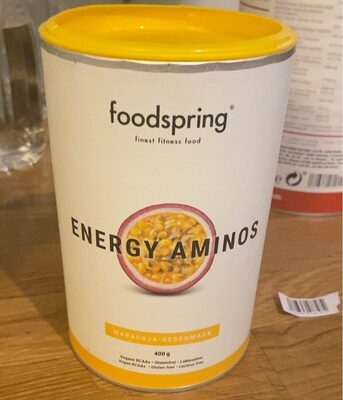Energy aminos - Foodspring
This product page is not complete. You can help to complete it by editing it and adding more data from the photos we have, or by taking more photos using the app for Android or iPhone/iPad. Thank you!
×
Barcode: 4260363487993 (EAN / EAN-13)
Brands: Foodspring
Labels, certifications, awards: No gluten, Vegetarian, Vegan, No lactose
Countries where sold: France
Matching with your preferences
Health
Food processing
Additives
Ingredients analysis
The analysis is based solely on the ingredients listed and does not take into account processing methods.
Serving size:
20
⚠
️Serving size is too small (5 g / 5 ml or less) to calculate 100 g / 100 ml values and perform any further nutritional analysis
Environment
Packaging
Transportation
Report a problem
Data sources
Product added on by kiliweb
Last edit of product page on by roboto-app.
Product page also edited by charlesnepote, putyaion, yuka.NpoTZvWyAud8I8vT6aAsgxGlL_zMOuNpMicUoQ, yuka.sY2b0xO6T85zoF3NwEKvln1ADdjUiA7jazLWqXea39uvEoDNfo4q_ZTcMag, yuka.sY2b0xO6T85zoF3NwEKvlnVHccqPjSqZMw7jsm6W5sq8f8b5QN4t84rEHKo.
If the data is incomplete or incorrect, you can complete or correct it by editing this page.








